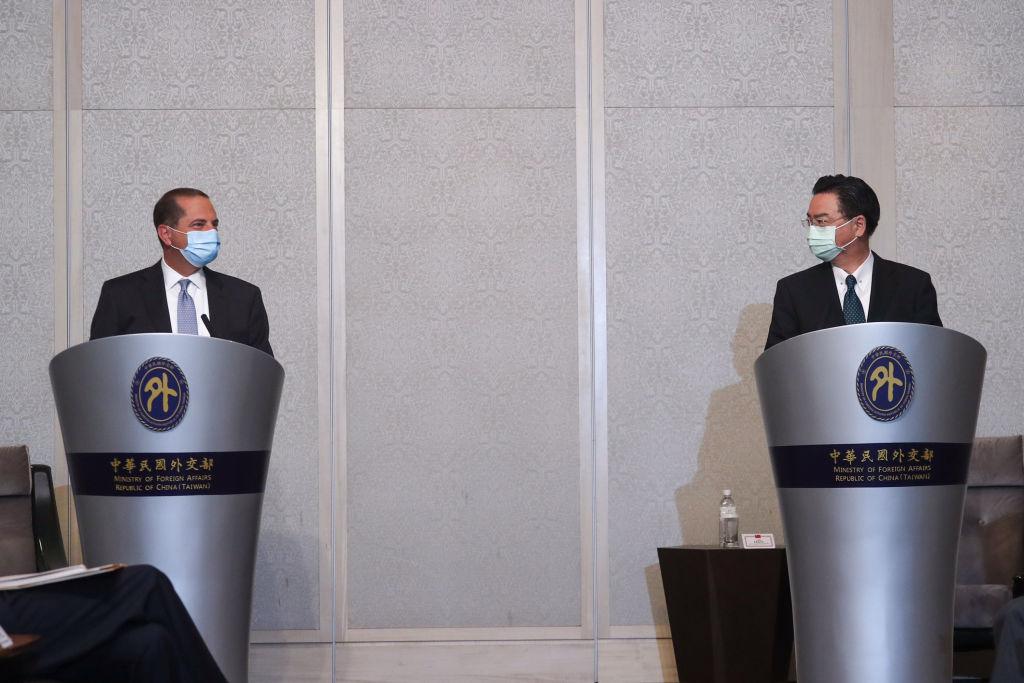TAIPEI, Taiwan—U.S. Health and Human Services (HHS) Secretary Alex Azar emphasized the importance of having the island be part of the global health community in the current pandemic, in his second full-day visit to Taiwan’s capital of Taipei.
“It is an honor to be here to bring greetings from President Trump and to be here to recognize Taiwan’s health leadership,” said Azar in a joint press conference with Taiwan’s foreign minister Joseph Wu on the morning of Aug. 11.





